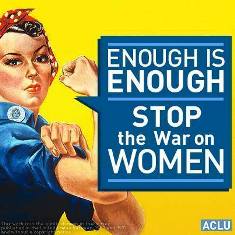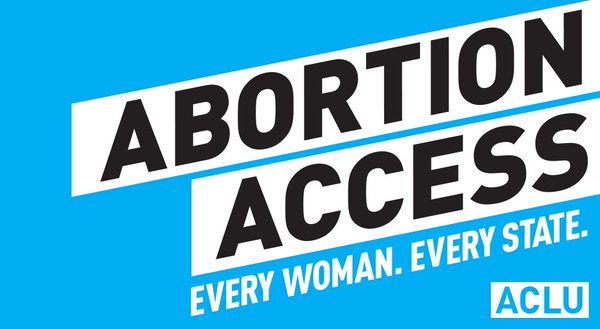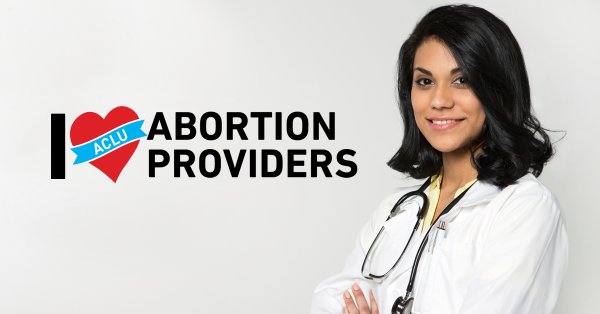A look back at history shows that women and female identified people have made great strides in the fight for equality, including women’s suffrage and inroads in equal opportunity in the workplace and education.
Despite this progress made in the struggle for gender equality, women still face violence, discrimination, and institutional barriers to equal participation in society. Knowing your rights and exercising them when necessary is essential to continuing to make strides for gender equality.
You have the right to be pregnant at work and come back to work after giving birth
Women are too often fired from or forced out of jobs when their employers learn that they are pregnant or when they return to work after having a baby. Many employers fire pregnant workers on the spot, particularly in low-wage sectors dominated by women. Others force pregnant workers off the job by refusing to grant them the same kinds of temporary modifications—such as light duty assignments—that are routinely granted to other workers who need them.
Firing women because they are pregnant, or treating pregnant workers worse than other workers who are also temporarily unable to perform some aspects of a job, has been illegal since 1978, when Congress enacted the Pregnancy Discrimination Act. But employers still do it, and, unfortunately, some courts have upheld these practices when employers come up with a “pregnancy-blind” reason to leave pregnant workers out in the cold. When women are pushed out of the workplace, they lose important income and benefits, contributing to a gender wealth gap between men and women.
Some women are fired because their employers do not believe that unmarried women should become pregnant. But religious institutions and other employers with religious or moral objections of this kind do not have a free pass to discriminate against women who choose to become pregnant.
After they give birth, women workers are the targets of discrimination if they need to pump breast milk to remain on the job. And both women and men who engage in caretaking suffer workplace discrimination based on gender stereotypes.
You have the right to safety
Domestic violence, sexual assault, and other forms of gender-based violence deprive women and girls of their fundamental ability to live with dignity. Women and girls experience domestic violence and sexual assault at alarming rates. Governments, institutions, laws, and policies contribute to the systematic devaluation of the lives and safety of women and girls by failing to respond to gender-based violence and discriminating against those subjected to such violence.
Accountability by the government, employers, landlords, and others, as well as recognition that discrimination against survivors is a form of sex discrimination, is essential to enable women and girls to live free from violence.
You have the right to a safe abortion and healthcare
More than forty years ago, the U.S. Supreme Court decided Roe v. Wade, the landmark case that secured a woman’s right to abortion. Since then, extremist politicians have been trying to take that decision out of a woman’s hands.
In some states, politicians are pushing through laws that ban most abortions. In others, they are doing everything they can to shut down the health centers that many women rely on for basic reproductive health services, including abortion care. Some politicians are even trying to end programs that provide birth control, putting women at high risk for unplanned pregnancy.
The ACLU works every day to stop this attack on reproductive freedom. We may not all feel the same way about abortion, but we can agree that deciding whether and when to become a parent is one of the most private and important decisions a person can make. It is time for politicians to stop interfering and to stop playing politics with women’s health care.
Every sexually active individual should have safe, affordable access to the full range of contraceptive options. Meaningful access to contraception and freedom from coerced contraception are integral to our vision of a world in which people are free to express their sexuality, form intimate relationships, lead healthy sexual lives, and decide whether and when to have children.
Access to contraception is critical to an individual’s autonomy, equality, and ability to participate in the social, economic, and political life of the nation. Yet for many people—particularly low-income women and teens—issues of cost and confidentiality make contraception inaccessible.
The ACLU seeks government policies that ensure access to affordable contraception; respect voluntariness; protect confidentiality; and prohibit sex discrimination, be it in the form of sanctioning religious refusals or treating contraception differently from other care.
You have the right to work in a safe and equal environment
The ACLU works to ensure that all women—especially those facing intersecting forms of discrimination—have equal access to employment free from gender discrimination, including discrimination based on sex stereotypes, pregnancy, and parenting; discrimination in the form of barriers to working in fields from which women have traditionally been excluded; and the systemic undervaluing of work traditionally performed by women.
Although pregnancy discrimination has long been illegal, workers who are pregnant or breastfeeding are often fired or pushed out of the workplace. This practice is rooted in the stereotype that women should be mothers, not workers, and it is reinforced by workplace policies modeled on traditional male norms.
The ACLU works to end wage discrimination in the workplace and ensure that all workers—regardless of sex, race, national origin, age, or disability—are able to bring home every dollar they rightfully earn. As a result of discrimination, including employers’ reliance on gender stereotypes, women lack parity with men in earnings. On average, women today earn just 78 cents for every dollar that men earn—an increase of only 17 cents on the dollar since the Equal Pay Act of 1963 was enacted. The figures are even more dismal for women of color. Black women are paid only 64 cents and Latinas only 54 cents for every dollar that white men earn. Obstacles such as punitive pay secrecy policies and weak remedies in some of our laws make it difficult to challenge the ongoing wage gap.
A range of barriers prevent women from having an equal opportunity to succeed in jobs from which they have traditionally been excluded. These can include formal barriers, such as physical ability tests unrelated to job performance or bans on their ability to serve in combat units, but they can also include other forms of discrimination and unconscious bias, including policies that force women out of non-traditional sectors like shipping and factory work when they become pregnant or return to work after having a baby.
Finally, the work of caring for children, sick family members, and elderly parents has traditionally been assumed to be, and often is, “women’s work.” This caregiving work, although essential to society, tends to be undervalued and is often either unpaid (when women combine care for their own families with paid work) or underpaid (when they work in caregiving occupations, such as in nursing homes). Workplace policies still fail to account for these obligations, and workers with child or elder care responsibilities often face sex discrimination and harassment, which inhibits their advancement in the workforce.
You have the right to an education
Education is the foundation for civic participation, and schools are formative in shaping how children and young people view themselves and others. Accordingly, it is essential that school environments foster gender equality and provide safe spaces in which all students can learn. Since the enactment of Title IX in 1972, federal law has guaranteed the right to education free from sex discrimination, and since then women and girls have made great strides toward achieving equality. But serious obstacles remain.
One major step backward is the increasing trend of separating boys and girls in public schools based on sex stereotypes. Sex-segregated educational programs are often justified based on pseudoscientific theories about how boys’ and girls’ brains function and how they learn; male and female students are then subjected to radically different teaching methods in the classroom on the basis of these sex-based generalizations. Treating students differently based on their sex is the definition of sex discrimination, and the growth of this trend in our public schools is a serious threat to gender equality.
Additionally, pregnant and parenting students often face severe obstacles to educational equality, leading to high dropout rates. Schools often treat young mothers as behavior problems and deny them full access to an education, fail to provide necessary services to support them in their parenting responsibilities, and engage in policies that lead them to drop out of school. In doing so, schools deny these students equal access to the tools they need to overcome the challenges they face as young parents as well as perpetuate sexist, and often racist, conceptions about sexually active young women.
Finally, students often face gender-based violence and harassment, which schools too often trivialize and fail to take adequate steps to prevent or remedy. Students’ equal access to education depends on effective policies and responses by colleges, universities, and school districts to address the violence and harassment that many students experience.
You have the right to fair and equal treatment while incarcerated
Over the past 30 years, the number of women and girls caught in the criminal justice system has skyrocketed. Many have been swept up in the War on Drugs and subject to increasingly punitive sentencing policies for nonviolent offenders.
Many of these women struggle with substance abuse, mental illness, and histories of physical and sexual abuse. Few get the services they need. The toll on women, girls, and their families is devastating.
Further, the overincarceration and overconviction of women has devastating effects on them and their families because of the barriers women face as a result of their criminal records. These barriers include employment discrimination (compounded by the trend among employers of conducting background checks), exclusions from certain occupations (including some traditionally dominated by low-income women, such as home health care and childcare), exclusions from housing, and bans on receiving public assistance.
The ACLU is working to reduce the overincarceration of women and girls, ensure equal rights and dignity while in confinement, and eliminate barriers imposed as a result of having a criminal record.
Related Content

Declo High Student Files Civil Rights Complaint with School District
Stay Informed
Sign up to be the first to hear about how to take action.
By completing this form, I agree to receive occasional emails per the terms of the ACLU’s privacy statement.
By completing this form, I agree to receive occasional emails per the terms of the ACLU’s privacy statement.




